Cars That Ate Paris, The / Cars That Eat People, The (1974)
“You ever seen a bloke with a foot up his nose?”
|
Synopsis: |
|
Genres, Themes, Actors, and Directors:
Response to Peary’s Review: He describes this most unusual flick as a “send-up of youth/drive-in films, westerns (a stand-off is filmed like a Sergio Leone shootout): … and horror films” — but “it can also be seen as an attack on Australia’s car culture, the acquisitive materialism of the bourgeoisie, and the oppressive autocracies present in small towns.” It’s hard to know what else to say about this movie except… it’s weird. Really weird. Be forewarned. Redeeming Qualities and Moments: Must See? Links: |
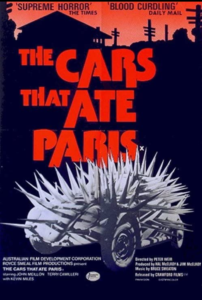
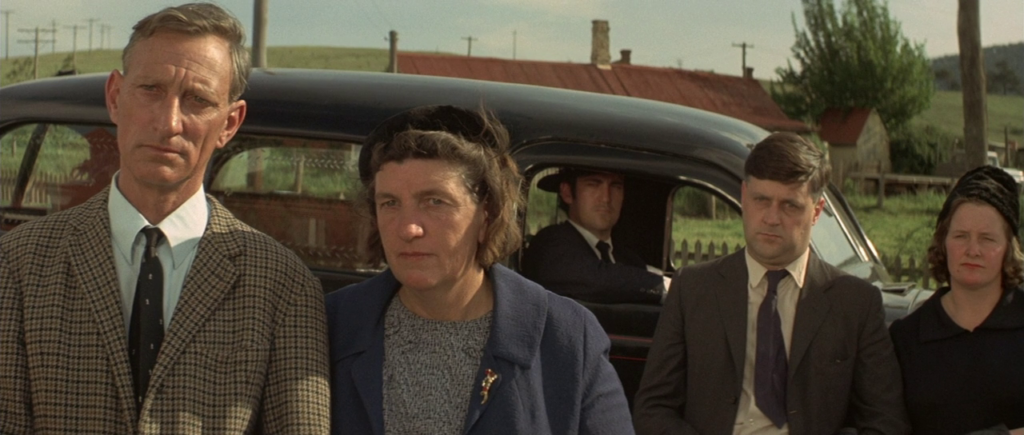
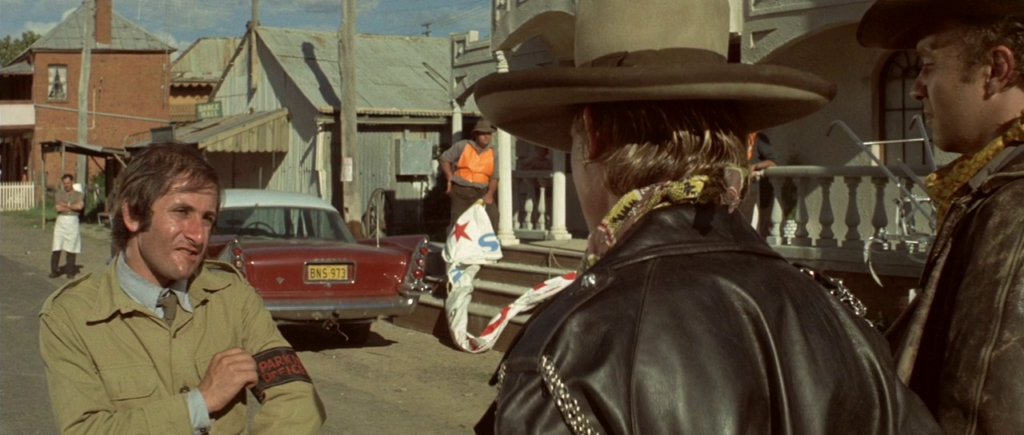
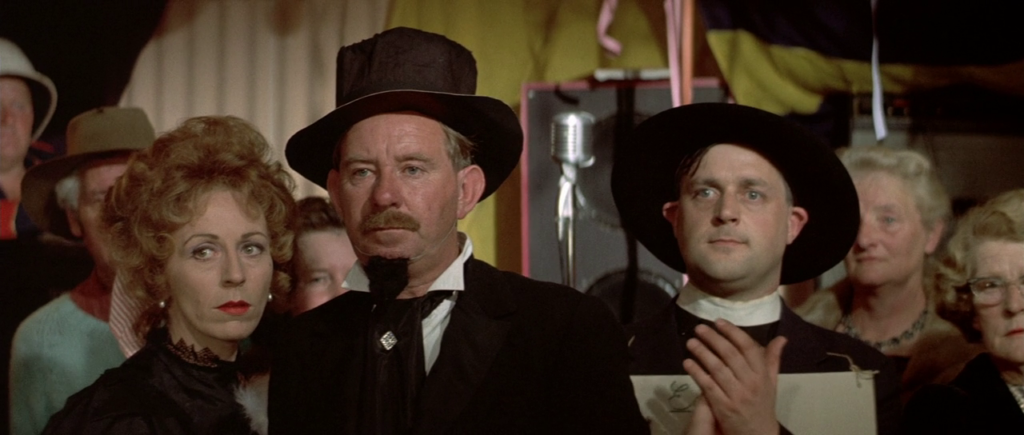
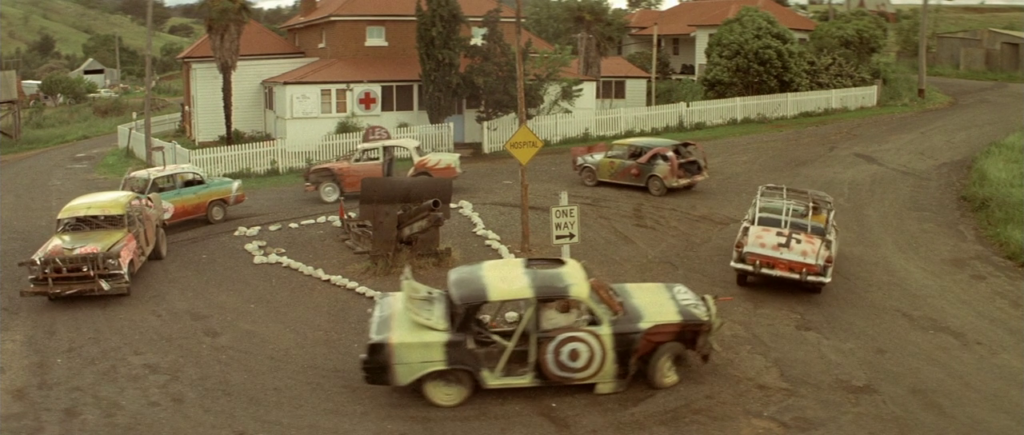
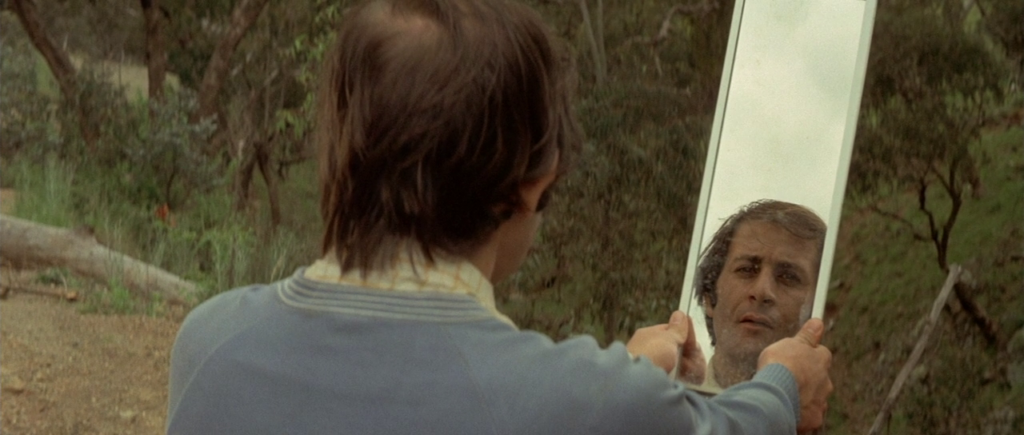
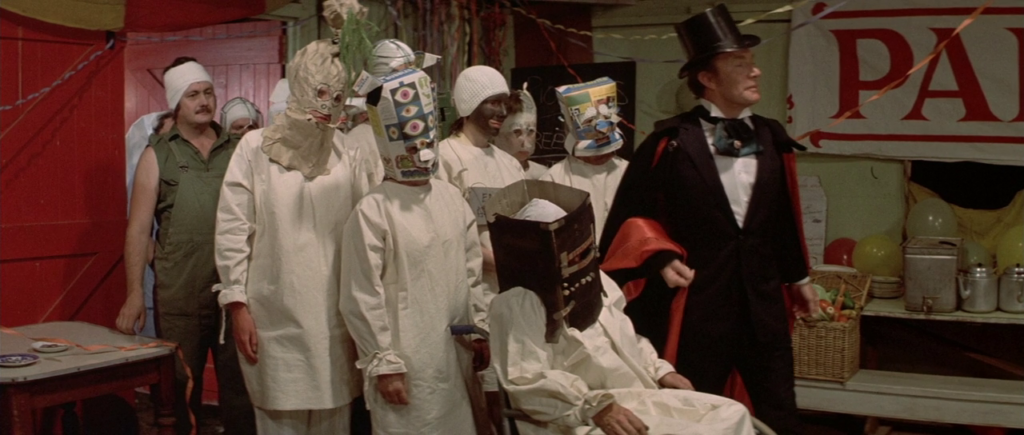
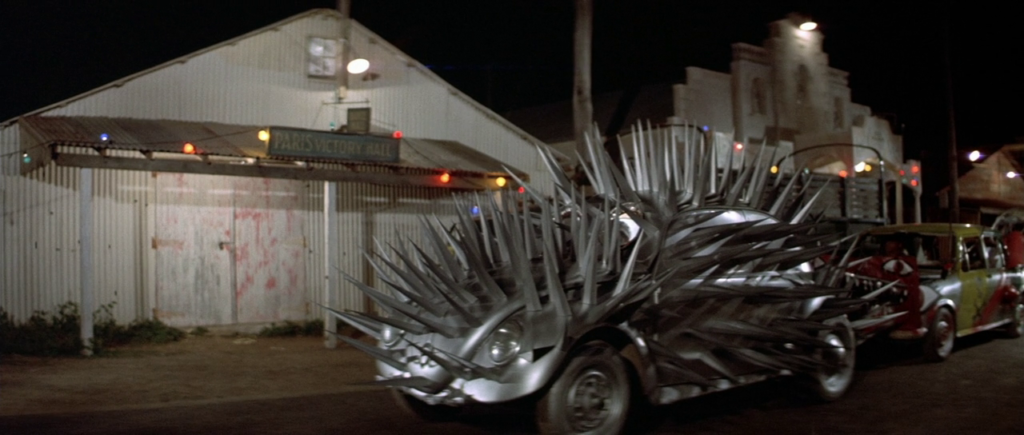
One thought on “Cars That Ate Paris, The / Cars That Eat People, The (1974)”
First viewing. Not must-see, though certain cult film fans are likely to have interest.
To me, this Twilight Zone-esque film reflects the anti-outsider feelings that can spring up in certain communities – particularly communities that fall prey to an ‘island mentality’ (whether the inhabitants are actually physically on an island or have created that ‘island’ in their minds).
Director Weir is to be applauded for his ability in developing a simple idea without (thankfully) stretching it beyond its worth. (Wikipedia tells us the script was originally conceived as a comedy – that’s evident – but that it grew darker as Weir developed it into its screenplay.)
Overall, the film reveals Weir as a filmmaker of talent – though it definitely has an odd (occasionally shifting) tone to it and viewers need to just stick with it for its pay-off.